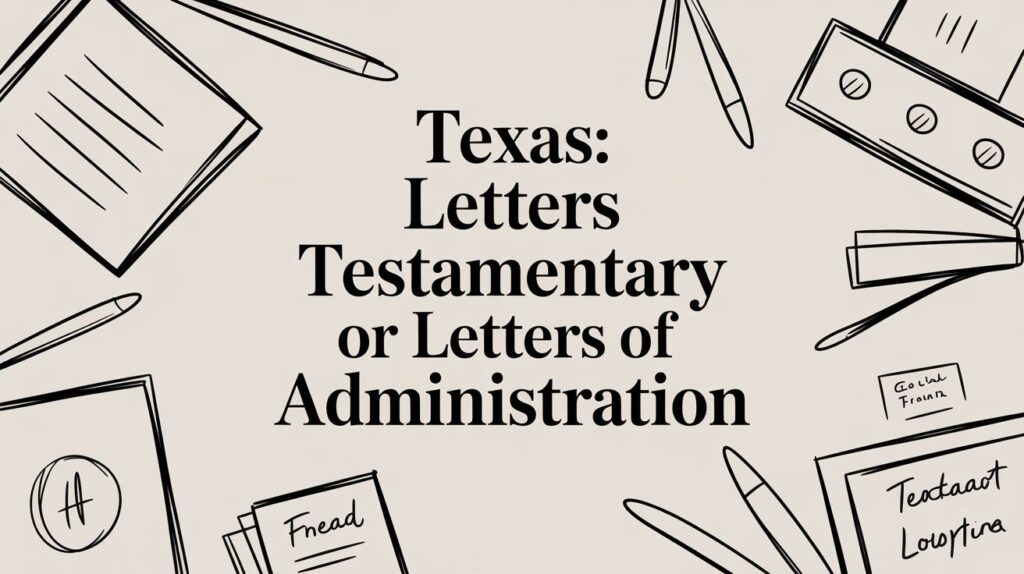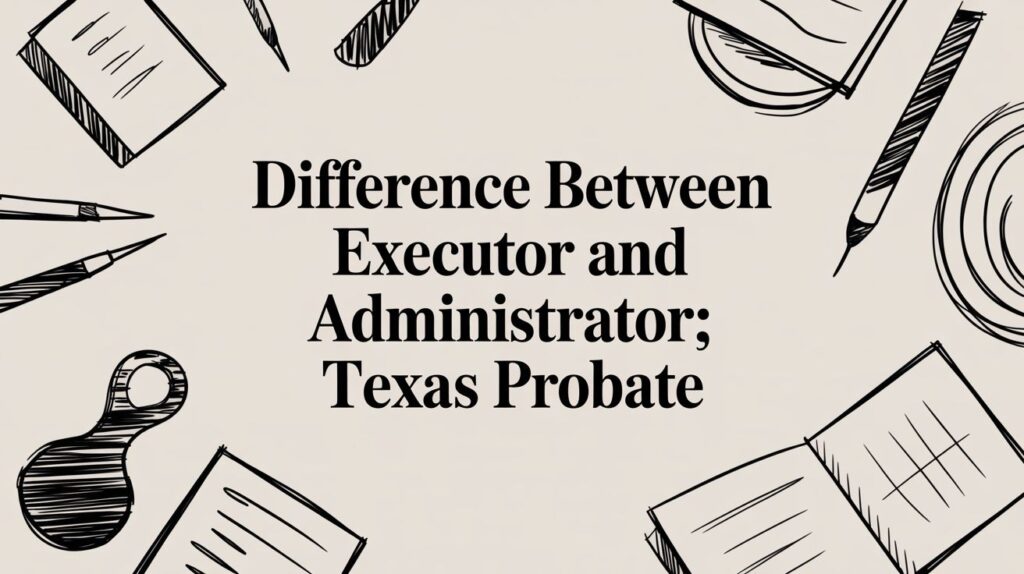Estate planning in Texas is a comprehensive and vital process that involves careful management and organization of your assets, property, and financial affairs during your lifetime and beyond. It’s a strategic approach to ensure that your wishes are respected, your loved ones are provided for, and your assets are distributed according to your preferences. This multifaceted process serves multiple purposes, including minimizing potential taxes and legal fees while safeguarding your legacy.
Estate Planning Options in Texas
The Role of a Will:
The Last Will and Testament is at the heart of estate planning, commonly called a “will.” This legal document outlines how your assets should be distributed upon your death. Additionally, it often designates an executor responsible for carrying out your instructions and ensuring your wishes are fulfilled.
Trusts and Their Benefits:
Estate planning frequently involves the creation of trusts. Trusts are legal entities that can hold and manage assets on behalf of specific individuals or for specific purposes. They can be employed to avoid probate, the often lengthy and expensive legal process of validating a will. Trusts can also provide for minor children, protect assets from creditors, or facilitate more complex distribution arrangements.
Powers of Attorney:
Estate planning includes preparing powers of attorney, which authorize someone you trust to make financial decisions on your behalf if you become incapacitated. This ensures that your financial matters are managed effectively, even if you cannot do so personally.
Healthcare Decisions:
You might establish a healthcare proxy or living will for healthcare matters. These documents specify your preferences regarding medical treatment and identify someone to make healthcare decisions on your behalf if you cannot communicate your wishes.
Beneficiary Designations:
Estate planning also involves reviewing and updating beneficiary designations on assets such as life insurance policies, retirement, and investment accounts. Ensuring these designations align with your current intentions is essential to avoid unintended consequences.
Guardianship Provisions:
If you have minor children, a critical aspect of estate planning is designating a guardian in your will. This choice specifies who should assume responsibility for your children’s care if you and their other parent cannot do so.
Tax Considerations:
Estate planning often incorporates tax planning strategies to minimize estate taxes, gift taxes, and income taxes that could impact your estate. These strategies protect your assets from excessive taxation while maximizing what’s passed on to your beneficiaries.
Charitable Giving:
For those with charitable inclinations, estate planning offers opportunities to incorporate charitable giving into your legacy. You can designate assets or a portion of your estate to support charitable causes or organizations you hold dear.
Estate planning is not confined to the wealthy; it’s a responsible and forward-thinking approach that individuals at various income levels should undertake. It provides clarity and peace of mind about the future of your assets and your loved ones’ financial security. Collaborating with an experienced attorney or financial advisor in estate planning is advisable to ensure your plan aligns with your specific goals and complies with the laws and regulations in your jurisdiction. By engaging in estate planning, you proactively shape your legacy and preserve your intentions for future generations.
Reasons For Estate Planning in Texas

Estate planning in Texas is essential for various reasons, as it helps individuals and families ensure their assets and affairs are managed according to their wishes both during their lifetime and after their passing. Here are some key reasons for estate planning in Texas:
Asset Distribution and Legacy Preservation:
Estate planning empowers individuals and families in Texas to ensure they distribute their assets according to their wishes. Crafting a comprehensive estate plan enables you to outline precisely how you want to divide your estate among your heirs or beneficiaries. This proactive step helps prevent potential disputes and ensures that your legacy aligns with your vision.
Avoiding Probate Hassles:
One of the key reasons for estate planning is to streamline the asset distribution process and minimize the complexities associated with probate. While Texas offers simplified probate procedures for smaller estates, effective estate planning can further expedite this process, potentially saving time and reducing costs for your loved ones.
Tax Efficiency and Estate Tax Considerations:
While Texas doesn’t impose a state inheritance tax, federal estate taxes may apply to larger estates. Estate planning can help you navigate these tax implications and devise strategies to minimize or eliminate potential estate tax liabilities. This ensures that more of your assets can pass to your intended beneficiaries.
Protection for Minor Children:
Estate planning is crucial for parents of minor children. It allows you to designate guardians who will care for your children in the event of your untimely passing. This critical provision ensures that your children’s well-being and upbringing align with your preferences and values.
Medical and Financial Decision Making:
Estate planning encompasses important documents like Medical Powers of Attorney and Living Wills. These legal instruments specify your medical treatment preferences and designate individuals to make medical decisions on your behalf if you cannot do so. Similarly, a Durable Power of Attorney allows you to appoint someone to manage your financial affairs should you become incapacitated.

Business Succession Planning:
If you’re a business owner in Texas, estate planning is essential for business continuity. It enables you to outline a clear plan for the transition of ownership or management, ensuring the ongoing success of your business even after your retirement or passing.
Protection for Special Needs Beneficiaries:
For families with loved ones with disabilities, estate planning is critical. It allows you to provide for their financial needs without jeopardizing their eligibility for crucial government benefits like Medicaid or Supplemental Security Income (SSI). This ensures that they maintain their quality of life and meet their needs.
Conflict Resolution and Family Harmony:
Well-structured estate plans can significantly reduce the potential for family disputes and disagreements over asset distribution. Clear directives and instructions help minimize the likelihood of legal battles among heirs, fostering family harmony during a challenging time.
Peace of Mind:
Perhaps one of the most important aspects of estate planning is the peace of mind it provides. Taking proactive steps to protect your loved ones and ensure your assets are managed according to your desires offers reassurance in life’s uncertainties.
Conclusion
In Texas, estate planning typically involves creating a will, considering the use of trusts, designating powers of attorney, and addressing specific needs and goals tailored to your unique circumstances. Consulting with an experienced estate planning attorney is advisable to navigate the intricacies of Texas laws and craft a comprehensive estate plan that aligns with your objectives and safeguards your family’s future.








